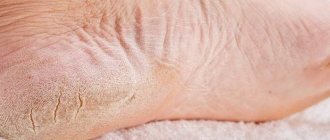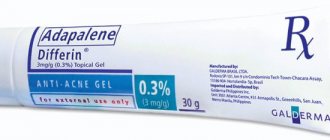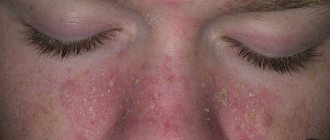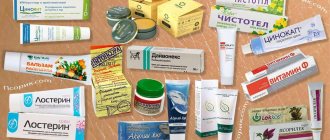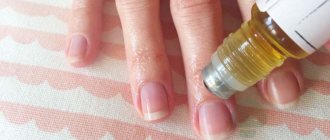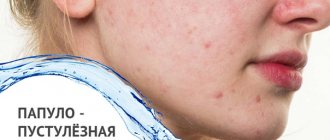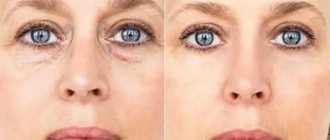Psoriasis is a well-known and widespread disease, affecting about 3-7% of the world's population. Over its thousand-year history, the disease has not undergone significant changes; the skin symptoms familiar to many, which are the hallmark of psoriasis, persistently manifest themselves in patients from year to year.
Treatment methods for psoriasis are improved every year. New methods and drugs are being patented, which psoriasis patients willingly use, hoping for a complete cure for the disease. There is no single, perfect and 100% valid standard of treatment for psoriasis, and this is not only due to the powerlessness of medicine in the face of psoriasis.
It has been absolutely established that each psoriasis patient responds to treatment in his own way, and if one method helps someone, this does not mean that it will help another. Probably, an individual search for a treatment that is truly effective in each specific case, a kind of biological experiment on oneself, is the only way to overcome psoriasis and, if not cured, then enter a stage of stable remission.
The only thing that all patients with psoriasis should remember is the prevalence of common sense over the principle of “What if it helps.” This is especially true for some unofficial and folk methods - a method that threatens life and health, even the most effective, definitely cannot be used, since the price of one’s own life will never be equal to the price of an unpleasant, but life-compatible disease.
All of the treatment methods presented below will be effective if the patient and his family and friends have a strong motivation to overcome psoriasis. A positive attitude towards treatment, as well as satisfaction with even minor improvements, is of great importance.
It’s not for nothing that there is such a phrase that “The disease feeds on negative emotions,” and this statement is directly related to psoriasis.
Injections and tablets
Psoriasis affects not only the skin, but also internal organs. Treatment of progressive and advanced forms of the disease involves taking medications orally. Most often these are tablets, but in some cases doctors prescribe injections.
Pills
The main groups of tablets effective in the treatment of psoriasis:
Retinoids
Products that are structurally related to vitamin A. Their correct use contributes to the rapid restoration of the normal condition of the skin, since the active components of the tablets normalize the process of epidermal cell division and also activate the exfoliation process.
The group of retinoids includes – Acitretin, Accutane.
This category of medications is contraindicated in pregnant women.
Steroids
Prescribed for severe inflammatory processes and allergic reactions. They help stabilize metabolic processes, but at the same time strongly suppress the activity of the immune system. This leads to dangerous side effects.
These medications include Metypred, Betamethasone.
Immunosuppressants
A type of immunomodulatory tablets that stabilize the intensity of T-lymphocyte production, as well as metabolic processes. Despite the fact that tablets of this group are effective for the treatment of psoriasis, they are very toxic. They must be taken strictly following the instructions and only as prescribed by a doctor.
Immunosuppressants include Cyclosporine, Neoral.
Anti-inflammatory pills
Prescribed for exacerbation of the disease, when the patient suffers from severe inflammatory processes.
In this case, Ketorol and Nise will help.
Antihistamines
During exacerbation of the disease, they help minimize itching. They also have a mild sedative effect.
Tablets of this group are Fenkarol, Suprastin, Claritin, Zyrtec.
Enzymes, hepatoprotectors
Improves the functioning of the gastrointestinal tract and liver.
The most effective are Karsil, Silimar, Essentiale.
Antibiotics
Needed if psoriasis is accompanied by infectious diseases.
In this situation, Macrolides and penicillins will help.
Enterosorbents
As the disease progresses, the body produces many toxins that have a destructive effect on its functioning. Taking enterosorbents will help get rid of them.
For this purpose, Polysorb and Enterosgel are prescribed.
Vitamins
Regardless of the stage of the disease and the location of psoriatic papules, it is necessary to take vitamin complexes. They are needed to maintain the functioning of the body.
If the disease occurs in a complex form, injections are given against psoriasis.
Injections
Depending on the purpose of the medication and the active substance, injections are divided into:
Immunomodulators
Activate the immune system, metabolism, relieve inflammatory processes.
This group includes Glutoxim, Pyrogenal.
Immunosuppressants
Suppress the activity of the immune system. Due to the content of monoclonal bodies, medications quickly improve the patient’s condition. A few injections a year are enough to achieve stable remission. Among the disadvantages of the drugs are strong side effects and high cost.
The most effective immunosuppressants are Stelara and Humira.
Antihistamine injections
They quickly alleviate the patient's condition, providing an analgesic, antipruritic and soothing effect.
The most commonly prescribed drugs are Chloropyramine hydrochloride and Tavegil.
Hepatoprotectors
They improve the condition of the liver, prevent its destruction and dysfunction, and activate the rate of removal of toxins from the body.
Medicines in this group are Heptral, Heptor. The active ingredient is ademetionine.
Glucocorticosteroids
Minimize inflammatory processes and prevent the development of allergies. At the same time, they strongly suppress the immune system and are addictive. Prescribed in extreme cases and only for a short time, when other medications have not helped improve the condition.
Representatives of this group are Flosteron, Metipred, Diprospan.
All drugs that are taken orally have a strong effect on the body. Before taking them, it is important to study the contraindications and the list of possible side effects.
What medications are prescribed?
Treatment of psoriasis must be comprehensive. Several types of medications are prescribed to help achieve the best therapeutic effect:
- Antihistamines. They are necessary if the disease develops acutely and is accompanied by severe itching and burning of the skin.
- Hormonal pills. They promote a speedy recovery due to their anti-inflammatory effect. Taken together with other means.
- Enzymes. They will help suppress the inflammatory process and increase the body's protective properties.
- Enterosorbents. With their help, the development of pathology slows down: signs of intoxication and foci of inflammation are eliminated.
- Hepatoprotectors. These medications are prescribed for problems with the functioning of the gastrointestinal tract, as this can weaken the immune system.
- Antibiotics. These are drugs prescribed for acute pathology. They eliminate inflammation and suppress the spread of plaques to healthy skin.
- NSAIDs. Non-steroidal drugs have a calming effect on the skin, cope well with itching, swelling, pain (especially with psoriatic arthritis).
- Cytostatics or immunosuppressants. They inhibit the formation of antibodies to their own epithelial tissues.
- Homeopathy. Natural substances in the basis of such products cause fewer side effects.
All medications are prescribed by the doctor individually, taking into account the development of the disease, the patient’s age, the characteristics of his body, and the presence of contraindications. Self-medication is dangerous!
Crema
Creams are very effective for psoriasis. They well moisturize the skin, which suffers from severe drying, and also contain active ingredients that eliminate the symptoms of the disease and promote the healing of papules.
Creams, unlike ointments, have a lighter texture, so the active components quickly penetrate into the deepest layers of the epidermis. The cream is quickly absorbed, making it convenient to use.
All creams for psoriasis are divided into 2 groups:
Hormonal
They contain a low concentration of hormones. They quickly reduce the intensity of pathological cell division, so the skin condition improves after several applications. However, when using them, side effects such as deterioration of the endocrine and cardiovascular systems and kidney function are observed. There is also an addictive effect, so the course of treatment with them should be short-term. New drugs are safer, but also have many side effects.
Popular hormonal creams are Triderm, Dermovate, Travocort, Elokom, Skin Cap.
Non-hormonal creams
They moisturize the skin well, relieve itching, flaking, and gradually improve its condition without risk to health. They have much fewer contraindications than hormonal analogues, and there are practically no side effects.
The best non-hormonal creams are Picladol, PsoriasisCream, Sophora, King of the Skin (this is a Chinese drug that demonstrates high effectiveness).
Psoriasis creams are most often prescribed as part of complex therapy along with other medications.
Antiallergic
Antiallergic drugs are prescribed to eliminate symptoms of the disease such as itching, swelling, and redness.
Suprastin
Based on reviews, these are effective tablets for psoriasis, widely used to eliminate allergic manifestations. Suprastin is used as an auxiliary therapy, it eliminates itching, swelling, and has a mild hypnotic effect. Contraindications include pregnancy, lactation, and the presence of diseases of the respiratory system, including bronchial asthma. The drug is prohibited for patients with pathologies of the heart, kidneys, and liver. Side effects are rare and disappear after stopping the pills. Suprastin price is from 150 to 500 rubles. The cost depends on the packaging of the medicine.
Tavegil
Tavegil is an anti-allergenic drug that blocks the effect of histamine receptors. The drug is used for various allergic diseases. The tablets have an antipruritic effect and help relieve swelling and redness. The product should not be used among children under one year of age, during breastfeeding, or if there is an allergy to the components of the drug. The price of Tavegil ranges from 150 to 250 rubles.
Tsetrin
Reviews of the medicine for psoriasis Cetrin are in most cases positive. The drug gently eliminates the manifestations of pathology and has a relatively safe effect.
Contraindications:
- pregnancy;
- breast-feeding;
- individual intolerance to the components of the product;
- kidney and liver diseases;
- old age and childhood.
The price of the medicine is from 150 to 250 rubles. The exact cost must be clarified at the pharmacy.
Ointments
To improve the condition of the skin on the body and minimize the severity of the unpleasant symptoms that accompany psoriasis, ointments are often used. They have a greasy and very dense texture. All ointments are divided into 2 groups:
Hormonal ointments
They act quickly due to the hormones they contain. The disadvantages of their use include changes in hormonal levels, dangerous side effects, and addiction.
Active components included in hormonal ointments:
- flumethasone, fludcortonol are contained in the drugs Flucinara, Locacorten, Sinalara;
- triamcinolone is the active component of Kenalog, Triacort, Berlicort, Nazacort ointments;
- Mometasone is an effective component of Momat, SkinLight, Uniderm ointments.
Non-hormonal ointments
Effective for regressive and stationary forms of the disease. They have an antipruritic, anti-inflammatory, moisturizing, softening and absorbable effect. Non-hormonal ointments have virtually no contraindications or side effects, but do not act as quickly as hormonal analogues. To notice a positive effect, the product must be used regularly for 5-10 days.
The most effective non-hormonal ointments are Akrustal, Daivobet, salicylic, zinc, ichthyol, sulfur-tar.
The duration of treatment with hormonal and non-hormonal ointments is determined by the doctor. For more detailed information about the products, see the article “Effective ointments for psoriasis.”
Breakthrough therapies in clinical trials
Since 2020, the Russian Research Institute has been conducting research on the newest drug – an interleukin-36 antagonist. There are several types of interleukins: the first three stimulate the inflammatory process, the fourth sets the body up to fight lichen planus. If a person with psoriasis does not have enough interleukin-36, then it will not be possible to cure the skin pathology. The development of Russian scientists has no analogues in the world. The drug has already proven its non-toxicity and immunosuppressive properties. But for now it is at the stage of clinical trials.
The drug Tildrakizumab is also being studied. It contains monoclonal antibodies that suppress interleukin-23, which causes skin inflammation and the development of lichen planus. The medicine is administered intravenously. Tildrakizumab has been shown to be well tolerated.
The product is being studied by Russian specialists with the participation of scientists from Harvard University and the Israeli Medical Center. The process is financed by the pharmaceutical corporation Merck. In 2020, the US Department of Health accepted an application for a license to manufacture Tildrakizumab.
Gels
Special gels are used to treat psoriasis. They are prescribed to eliminate the symptoms of psoriasis of the joints, nails and skin. Medicinal gels are divided into 2 groups:
- Used orally (inside) - necessary for thoroughly cleansing the body of toxins. The most powerful drug in this category is Enterosgel.
- Apply locally to affected areas of the skin - with regular use, the gel eliminates inflammation, peeling, itching, and accelerates the rate of healing of papules.
Gels for psoriasis for external use are divided into cosmetic and medicinal. The first are intended for use by people suffering from psoriasis during periods of exacerbation and remission. Cosmetics included in this group do not contain harmful components that irritate the skin.
The best shower gels for psoriasis are Rhodia, Psorilom, CreamMe, Cynovit, BioBeauty.
Therapeutic gels are applied locally to psoriatic papules, softening, moisturizing them, relieving itching and peeling. Unlike creams and ointments, these preparations do not contain fats and oils. They are quickly absorbed and easy to apply.
Effective medicinal gels – Nano-gel, Lamisil, Fenistil gel.
Modern methods of treating psoriatic polyarthritis
Lichen squamosus is often complicated by psoriatic polyarthritis (inflammation of the joints). The disease is difficult to treat and often leads to disability.
The FDA has proposed staircase therapy for psoriatic polyarthritis. The bottom line is that the least toxic medications are prescribed first - ointments, physiotherapeutic procedures (mud applications, phonophoresis).
If the effect is not achieved, then stronger drugs are used. If the patient's condition remains unchanged, then highly toxic medications are used. So, at the initial stage, Taklonex ointment is prescribed. Local inflammation of the joints is treated with non-steroidal anti-inflammatory drugs and analgesics.
For moderate and severe forms of psoriasis, doctors recommend phototherapy, photochemotherapy, and the administration of the immunosuppressant Humira.
Psoriatic polyarthritis especially often affects people aged 25 to 55 years.
Sprays
Preparations used to care for skin affected by papules. Sprays have a softening, moisturizing, antiseptic and antipruritic effect, reduce the rate of cell division, thereby improving the condition of the skin. They are used in complex therapy against psoriasis.
Types of sprays for psoriasis:
- Hormonal - contain hormones, which makes them act quickly. Effective hormonal sprays – Oxycyclosol, Polcortolone TC.
- Non-hormonal - do not contain hormones. This group includes Skin-Cap, Spray 999, BeautyBalance.
Hormonal medications have a lot of contraindications, so you should not use them unless absolutely necessary.
Symptoms of the disease
Triad of signs of psoriasis
Stages of psoriasis
How is psoriasis transmitted and is it contagious?
Mustard gas exposure is not necessarily fatal. During World War I, mustard gas caused the death of less than 5% of people exposed to it.
Because mustard gas may not have an odor, people may not immediately recognize that they have been exposed to it. As a rule, signs and symptoms, depending on the severity of the lesion, appear within 24 hours.
Lotions
Lotions have a good moisturizing and caring effect for psoriasis. They improve skin condition, eliminate itching and redness.
Types of lotions for psoriasis:
- Non-hormonal - there are no hormones among its active components, so the drug does not affect the hormonal balance of the body. Most often, doctors prescribe Devonex and Calamine.
- Hormonal - they contain hormones, so they must be used carefully, strictly dosed and only as prescribed by a doctor. Effective drugs in this group are Belosalik, Elokom, Diprosalik.
- Chinese lotions are placed in a separate group. Among the drugs that demonstrate high effectiveness in the treatment of psoriasis, it is worth highlighting the lotions Li Kang, Fufang, Jie, Er Yin.
The main advantage of lotions is the ease and effectiveness of application. They are intended for the treatment of psoriasis on the body and head, including the scalp.
Diagnostics
As a rule, in order to make a correct diagnosis, doctors only need a visual examination of the patient. However, in order to rule out lichen and determine the type of psoriatic plaques to determine the most appropriate treatment and medications, tissue examination (particularly scrapings) as well as an examination of general health may be required.
Tablets and ointments for psoriasis, which help combat skin problems, often have a beneficial effect on the general condition of the body.
Oils
Oils are often used for topical treatment of psoriasis. Their key advantage is their natural composition and high efficiency, but they need to be used for a long time to get the desired effect.
Types of oils effective in treating psoriasis:
Essential
They have an active effect, speed up the healing process, but can provoke allergies, so they must be applied carefully. Effective oils for the treatment of psoriasis are lavender, oregano, bergamot, jasmine, sandalwood. Citrus oils should be avoided as they tend to irritate the skin.
Vegetable
Flaxseed, olive and burdock oils perfectly moisturize the skin, activate regeneration processes, and eliminate discomfort. They can be used independently, as an addition to drug therapy.
Essential oils should not be used in their pure form, but combined with plant oils or added to moisturizers.
Doctor Lotarev's methods
Doctor Anatoly Viktorovich Lotarev proposed an effective course of treatment for psoriasis, taking into account the root cause of the pathology.
Treatment is long-term: it takes 1.5-2 months. Lotarev’s technique has a complex effect on the body and takes into account the individual characteristics of a person. The doctor suggests using external remedies Kalovit-wash and Charka. These drugs relieve inflammation, itching and flaking, and reduce the size of plaques. In some cases, the skin clears up by the end of the second week of therapy.
Next, the cause of the disease is targeted. To identify it, Lotarev recommends thoroughly examining the person.
After studying the ultrasound and analyzing the composition of urine and blood, you can choose effective therapy. According to the doctor, skin rashes are caused by problems with the stomach, gall bladder, intestines, ovaries, and liver. The patient is selected for treatment lasting up to 1.5 months. According to patient reviews, this technique allows one to achieve remission for up to 20 years.
Homeopathic remedies
Homeopathic medicines guarantee high effectiveness in the treatment of psoriasis. They are selected purely individually for each patient. The type of medicine and its dosage can only be prescribed by an experienced homeopath.
Best homeopathic medicines:
- Psorinohel is a universal medicine prescribed for different types of psoriasis;
- Arsenicumiodatum – has a gentle effect on the body, therefore it is suitable for the treatment of weakened and elderly people;
- Petroleum – for the treatment of psoriasis of the nail plates;
- Acidumformicum – relieves discomfort symptoms accompanying psoriasis;
- Manganum – for the treatment of joint psoriasis.
Homeopathic medicines help achieve a stable state of remission and reduce the number of relapses only if you strictly follow the dosage and regimen of their use.
Indications for immunobiological therapy
Immunobiological therapy is indicated for patients with moderate to severe psoriasis, especially in the presence of joint damage. Also if other previously administered therapy is ineffective.
Do I need to take any tests before starting treatment?
Before starting treatment, it is necessary to undergo a general and biochemical blood test, as well as undergo tests for latent tuberculosis (x-ray, Mantoux test).
How is the treatment carried out?
The drug is administered as a subcutaneous injection. Treatment is carried out only under the supervision of a physician experienced in the use of immunobiological drugs.
Shampoos
There is a wide variety of special shampoos for treating the scalp. They are divided into:
- Medicinal - contain zinc, ichthyol, salicylic acid, which have an active antimicrobial effect. Skin-Cap is recognized as the most effective.
- Antifungal – eliminate fungus, skin peeling, itching. The best drug in this group is Nizoral.
- Tar - eliminate flaking, itching, irritation due to the content of birch, juniper or pine tar. Preparations – Friederm tar, Psorilom.
- Cosmetic - have a caring and soothing, rather than a healing effect. Suitable for hair care during remission, since they do not contain aggressive components that irritate the skin. The best shampoos in this group are Sulsena, Friederm Balance, Natura.
- Children's - for the treatment of psoriasis in children, Nipp and JonsosnsBaby shampoos are suitable. An alternative to these drugs is the Russian-made “Me and Mom” shampoo. All of them are gentle and do not contain fragrances or dyes.
For the shampoo to be as effective as possible, it must be selected by the attending doctor. Information on this topic is presented in the material “Shampoos for psoriasis on the head.”
Initial stage of development
There are four stages of psoriasis development:
- initial;
- progressive;
- stationary;
- regressing.
At this stage of development, the disease is just beginning to manifest itself. You may notice minor rashes that are usually no larger than the size of a match head.
They are first noticed on the crooks of the arms or legs, as well as on scar tissue, for example, after burns. Initially, they have a pinkish tint, and after 15-25 days they begin to become covered with a whitish coating and peel off.
At this stage, the treatment of psoriasis using ointments has received good reviews.
Next comes the progressive stage. It is characterized by the appearance of more rashes, as well as their increase in size. You may notice that some rashes are beginning to merge with each other. This stage of psoriasis has the main symptom: with a cut, burn or minor scratch at the site of injury, new psoriasis rashes appear over time, which aggravates the treatment.
the progressive stage is characterized by the appearance of more rashes
This stage is quite difficult to diagnose, and its development is purely individual, so it is impossible to even name the approximate duration of the disease.
At this stage, the formation of new rashes stops, and itching and pain also go away. Periodically, the stationary stage can return to the progressive stage, and from there to the remission stage. It is very important not to stop treatment during this period and adjust it correctly.
This stage is the last and ends the process of exacerbation of the disease. The rashes become less pink and gradually begin to match the base color of the skin. With proper treatment at this stage, long-term remission can occur.
Psoriasis patches
Among modern remedies for psoriasis, patches occupy a special place. They are very convenient to use - just stick to the affected area of the epidermis and wear for several days. The patches contain active ingredients that penetrate the skin and have a healing effect.
The most popular Chinese patches are Delicate Skin and Qu'annaide Xinmeisu Tiegao (Qu'annaide Xinmeisu Tegao).
Herbs and infusions
In the treatment of psoriasis, traditional medicine is effective, which involves the preparation of various medicines based on natural ingredients. Most often, herbs such as celandine, sage, licorice, hops, and calendula are used for this purpose. Papules can be wiped with the juice of the listed plants. This is a good addition to external medicinal treatment.
Decoctions are prepared based on herbs and other plants. They are taken orally or used for compresses and lotions. Let's look at a few effective recipes:
- Pour 1 liter of boiling water over 4 tablespoons of string and leave for 2 hours in a thermos. Drink the infusion three times a day, 100 g, until your health improves.
- Mix 1 part each of hops, string, motherwort, burdock root, nettle leaves and 3 parts licorice. Pour a tablespoon of the resulting mixture into 0.5 liters of water for 12 hours. Drink 100 ml every morning for 6-12 months.
Before you start taking herbs and decoctions, it is important to make sure that you are not allergic to them. It is also important to realize that these are complementary treatments and are not a substitute for drug therapy.
Vitamins
Vitamin therapy plays an important role in the treatment of lichen planus. Enriching the body with vitamins and minerals has a positive effect on the general well-being of the patient and his ability to resist the disease. Popular vitamin preparations include:
- folic acid;
- Lacetin;
- mummy in tablets;
You can read more about folic acid treatment here.
Despite the relative safety of vitamins, it is recommended to use them as prescribed by a doctor. Otherwise, hypervitaminosis may develop.


